.jpg)
FUEN Working Group on Education discusses challenges and future of minority schooling in Europe
20.11.2025The FUEN Working Group on Education held its 7th Annual Meeting from 10 to 13 November 2025 in Komotini, Western Thrace, Greece. The meeting brought together 34 participants from eleven European countries, including representatives of national minorities, educational institutions and civil society organisations. The discussions focused on the state of minority education across Europe and on minority education at secondary and upper-secondary levels.
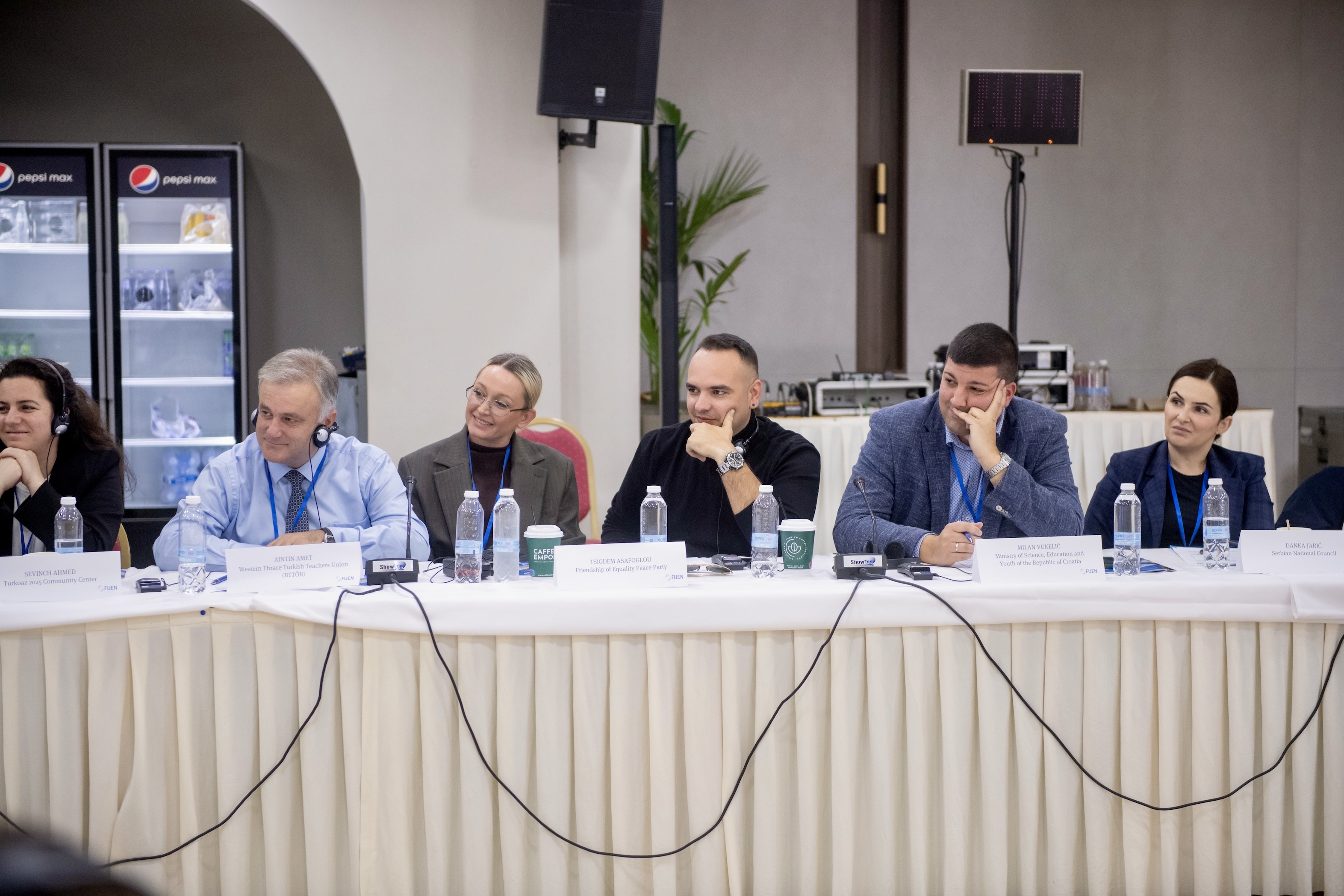
FUEN followed an invitation from its Western Thrace Turkish member organisations to hold the meeting in Komotini. This made the situation of the bilingual Turkish school system in the region an integral part of the programme, alongside the broader examination of minority education and the teaching of minority history at secondary level.
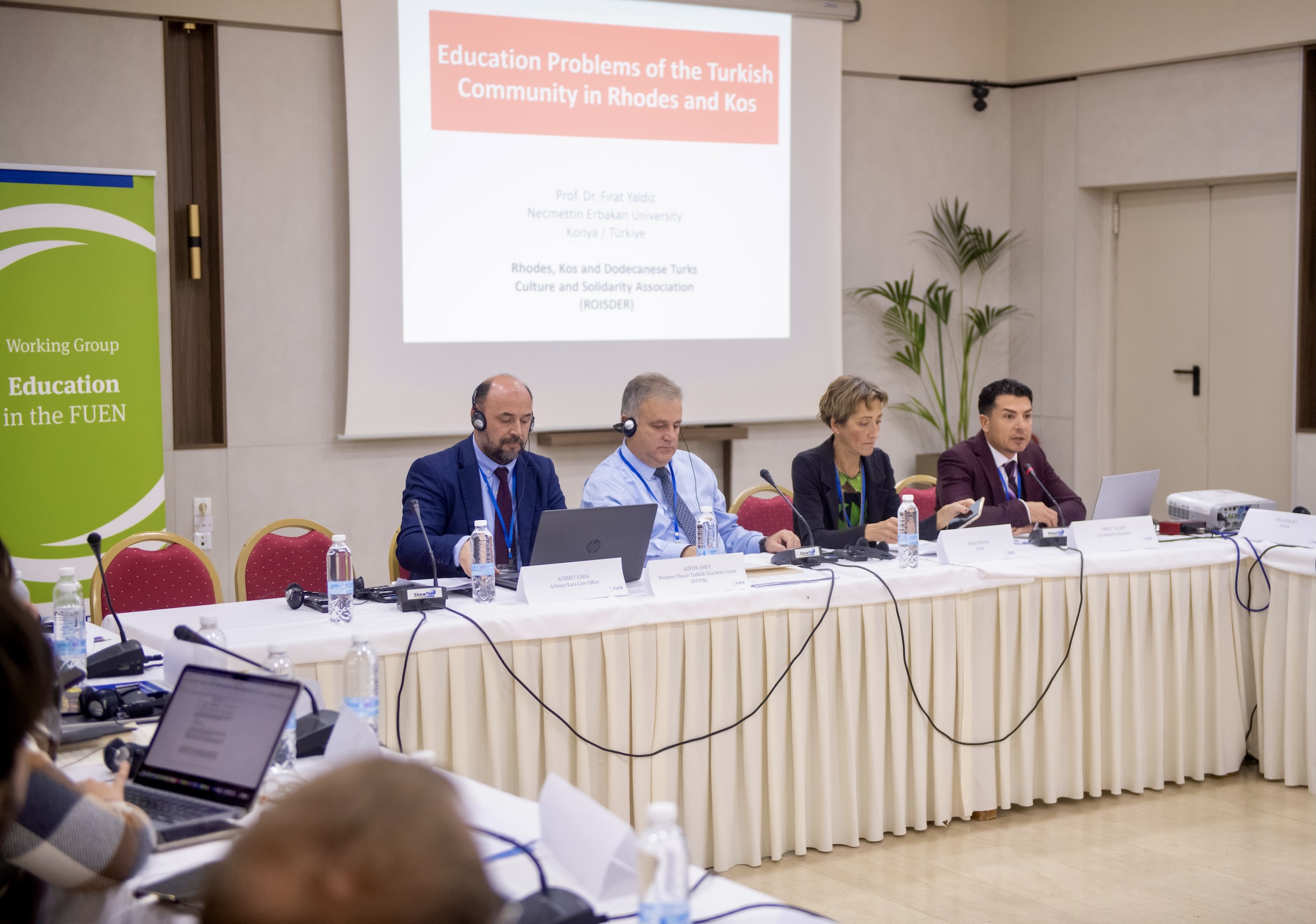
In their opening remarks, delivered by FUEN President Olivia Schubert, who joined the meeting online, and Secretary General Eva Pénzes, both underlined that strong minority education systems are fundamental for cultural continuity, participation and social cohesion and noted that many communities operate under increasing pressure, making coordinated advocacy essential.

During the following panel discussions, the participants reported that minority education systems in many regions are marked by declining school numbers, teacher shortages, outdated or insufficient teaching materials and limited institutional support. Reports from Western Thrace, presented by Melek Kırmacı, Prof. Dr Fırat Yaldız, Aydın Ahmet and Ahmet Kara, highlighted the sharp reduction in minority primary schools, the existence of only two minority secondary and high schools, the absence of Turkish-language kindergartens and the diminishing influence of the minority curriculum. The delegates noted that the reduced autonomy of school boards and administrative reforms have further weakened the system.
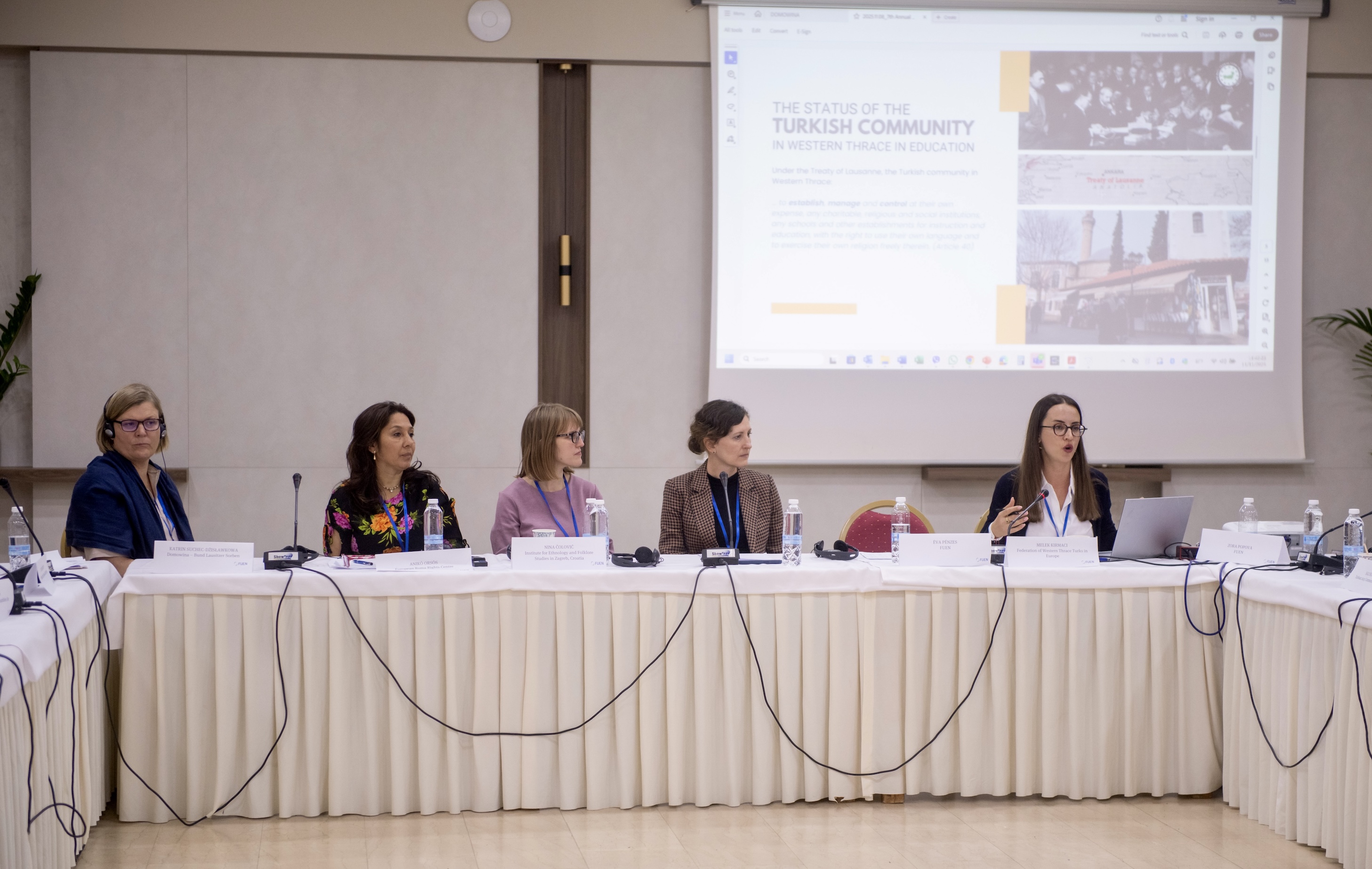
Similar concerns were raised by other communities. Sorbian representatives pointed to the endangered status of Lower Sorbian and the need for stable teacher recruitment. Representatives of the Serb minority in Croatia described the shrinking visibility of Serbian language and culture in schools. The European Roma Rights Centre reported persistent segregation and unequal access to high-quality education in Hungary.
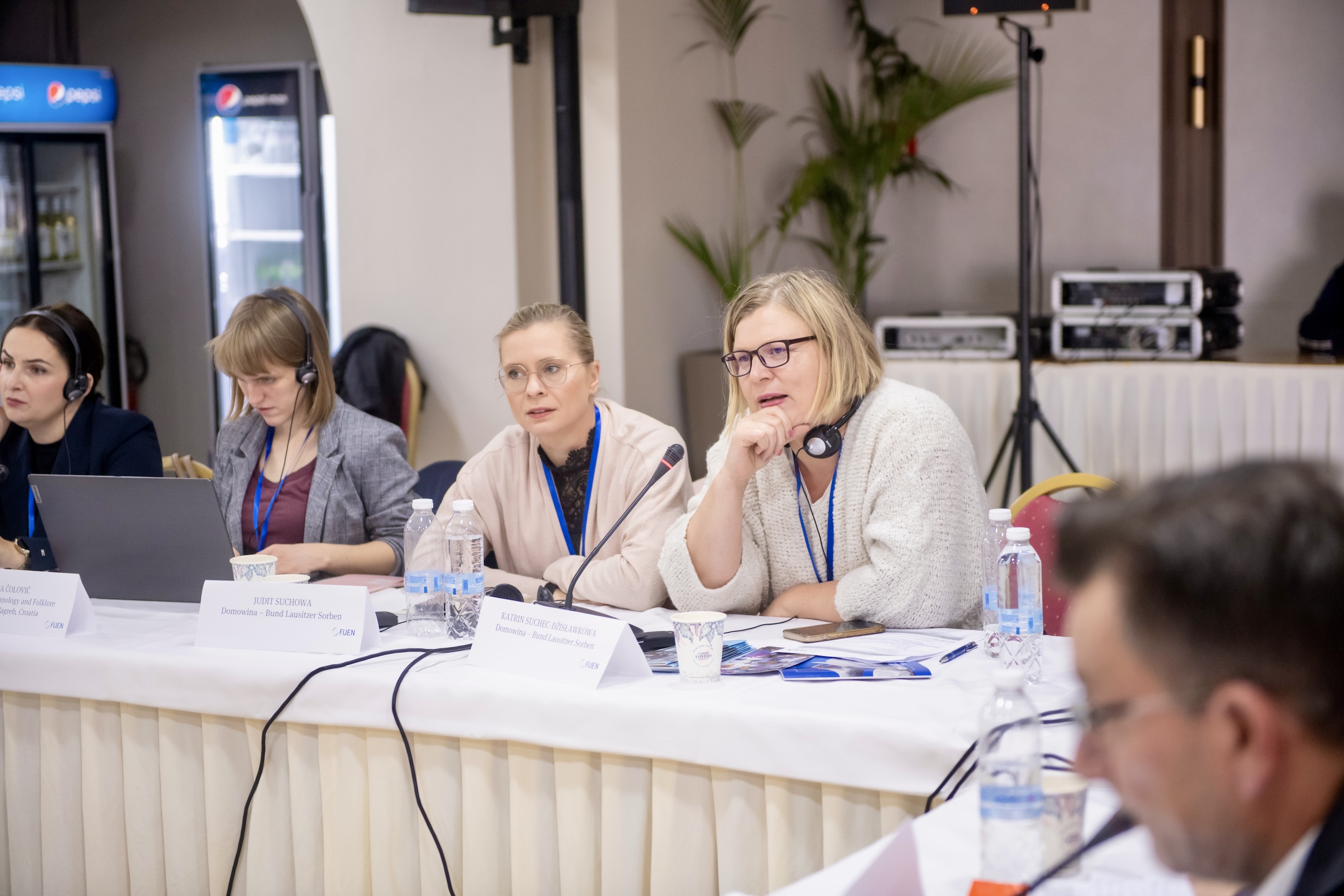
These challenges also shaped the discussions on curricular issues, where the teaching of minority history emerged as a central theme. The participants noted that minority histories are often underrepresented in national curricula and are frequently framed through majority perspectives. Teachers in several countries rely on outdated textbooks or must produce their own materials, particularly in bilingual settings. Legal expert Thomas Hieber outlined the gap between formal protections and practical implementation and emphasised that without adequate material, curricular space and teacher training, even legally recognised rights risk losing their effectiveness. Reports from Catalonia, the Burgenland Croats, the Hungarian Germans and the Greek communities of Ukraine illustrated how political decisions, demographic change and armed conflict directly affect the transfer of minority language, culture and historical knowledge.
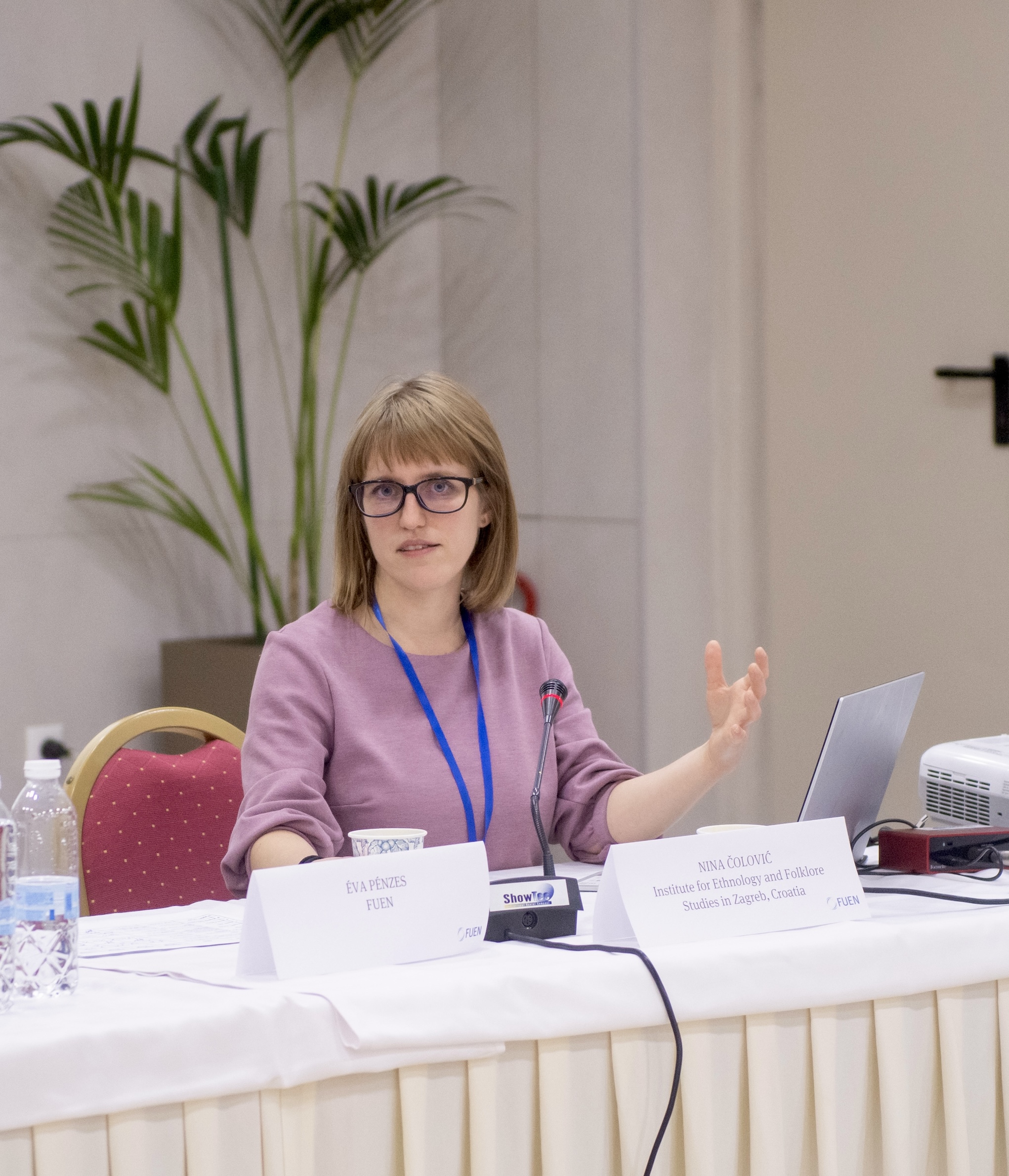
The country reports provided a detailed picture of these developments. The representatives of Plataforma per la Llengua outlined how the Catalan immersion model faces political and legal pressures and how recent curricular reforms have reduced the space for regional histories. The delegates from Western Thrace described shortages of bilingual textbooks and reliance on teacher-produced materials. The Macedonian community in Greece reported the complete lack of mother-tongue education and the resulting accelerated language shift. Representatives of the Burgenland Croats and Hungarian Germans highlighted the mismatch between national curriculum demands and minority-specific content, explaining that many teachers create supplemental learning materials to ensure their histories remain visible. As a positive example, Petra Englender-Virth presented a history textbook developed for teaching the history of the Hungarian Germans. The Greek communities of Ukraine described how the war has disrupted schooling, reduced the number of Greek-language schools from 32 to 8 and caused severe shortages of qualified teachers.
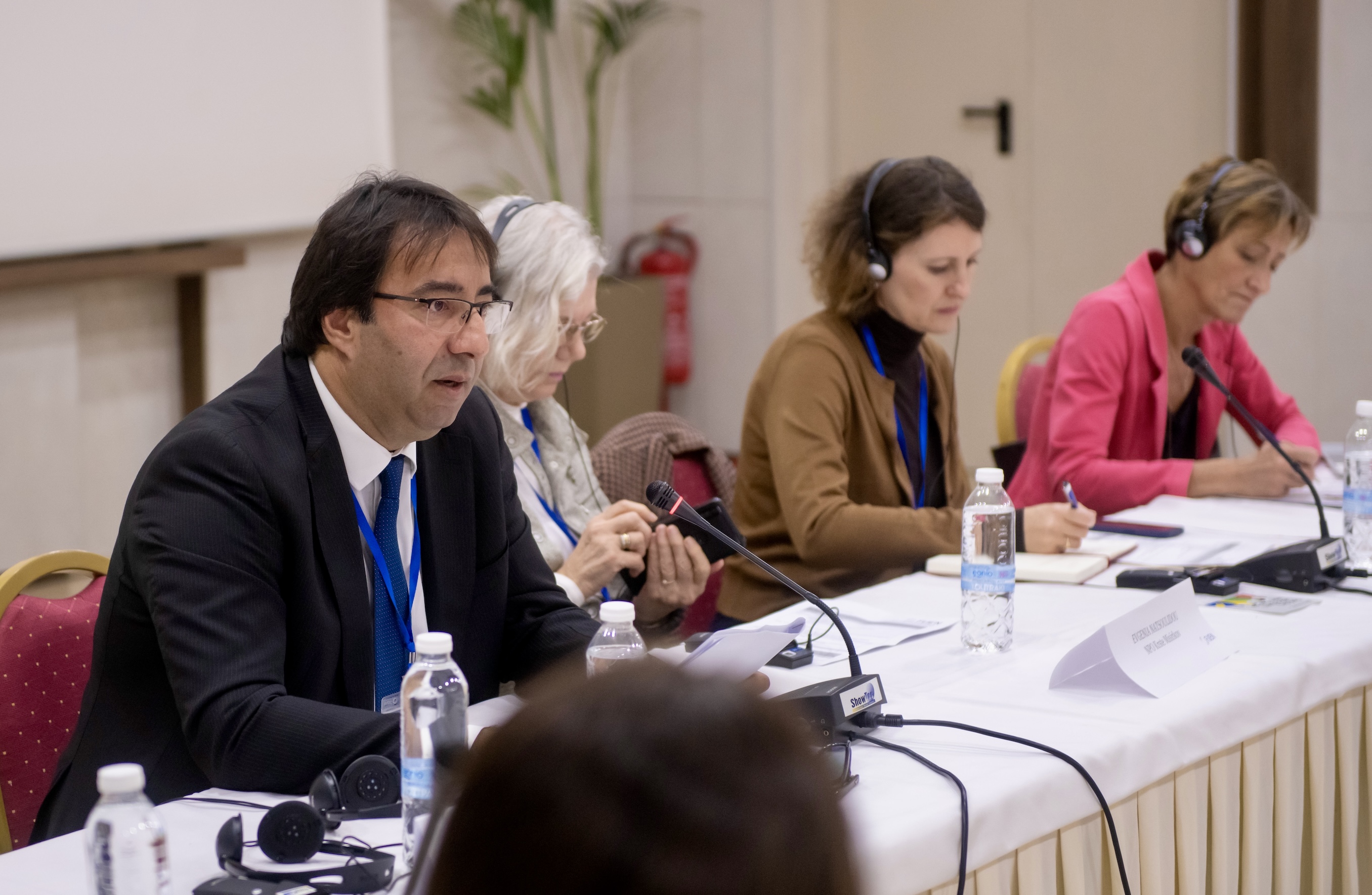
The difficult situation of minorities in Greece became evident through the Ministry of Education’s refusal to authorise school visits. This marked the first time since the establishment of the FUEN Working Group on Education that a government declined such a request. To ensure that FUEN could nevertheless obtain information, the Directorate of Primary and Secondary Education in Rhodope (Rodópi), the regional unit that includes Komotini and forms part of Western Thrace, invited FUEN for a meeting. Secretary General Eva Pénzes led the delegation that met with Kosmidou Marigoula, head of the Directorate, who explained the administration of Muslim Minority Schools, including the bilingual structure, the dual curriculum, staffing challenges and demographic factors influencing school viability. She also noted that, due to the high number of requests, school visits could not be arranged.
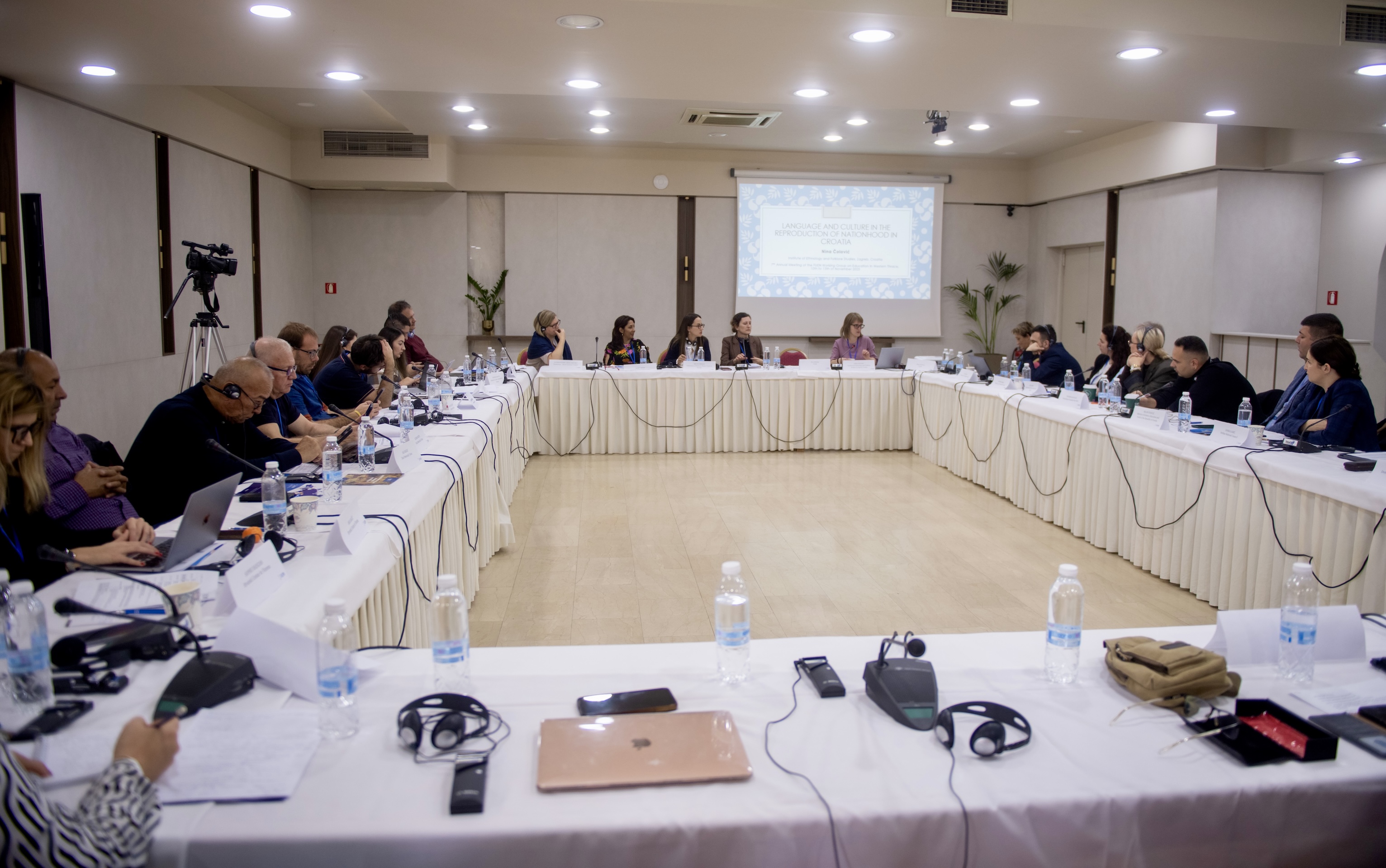
Throughout the annual meeting of the Working Group, the discussions highlighted that dialogue on an equal footing is essential. Effective cooperation between schools, authorities, minority organisations and families is necessary to secure the future of minority education. The participants also emphasised the need for stronger European-level frameworks to safeguard minority languages and identities. The situation in Western Thrace underscored that minorities must work together, support one another and engage in exchange, since cooperation strengthens their position within education systems.
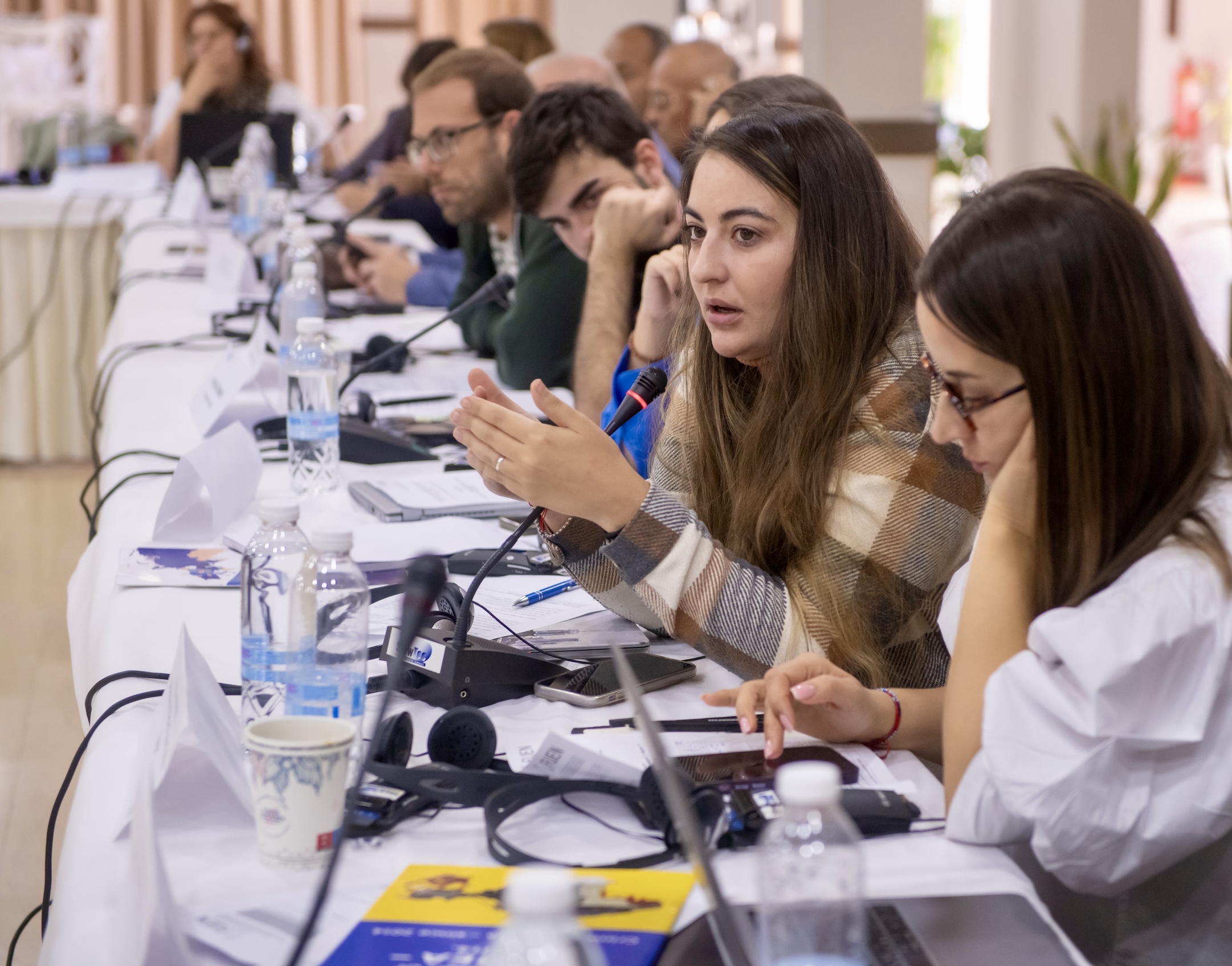
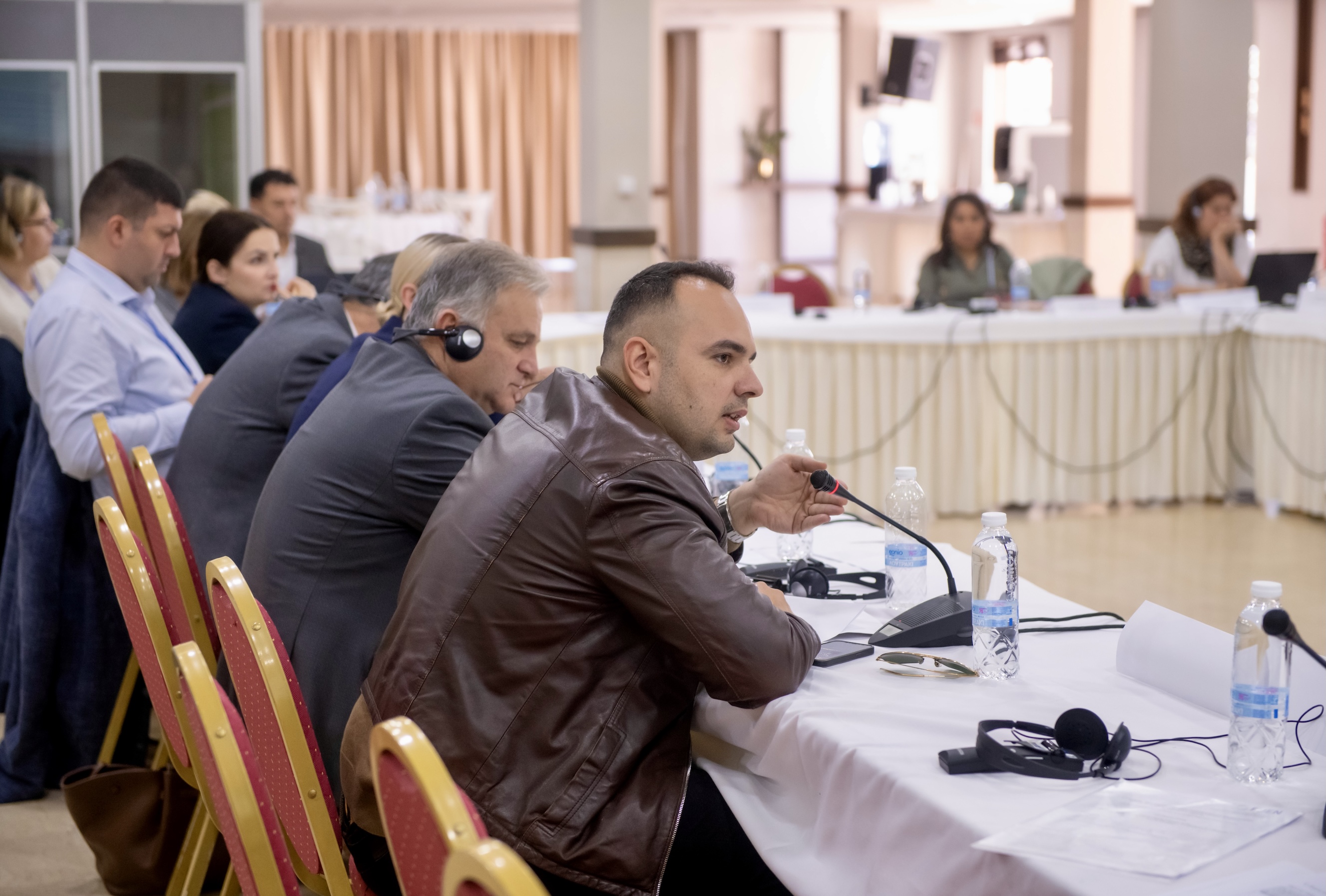
Across all sessions, the participants emphasised that secure and high-quality minority education is essential for cultural continuity, democratic participation and social cohesion. They agreed that effective implementation of existing rights, adequate resources and reliable institutional frameworks are needed across Europe. FUEN will continue to advocate for strong, well-resourced minority education systems and will develop its work further in 2026 based on the discussions held in Komotini.
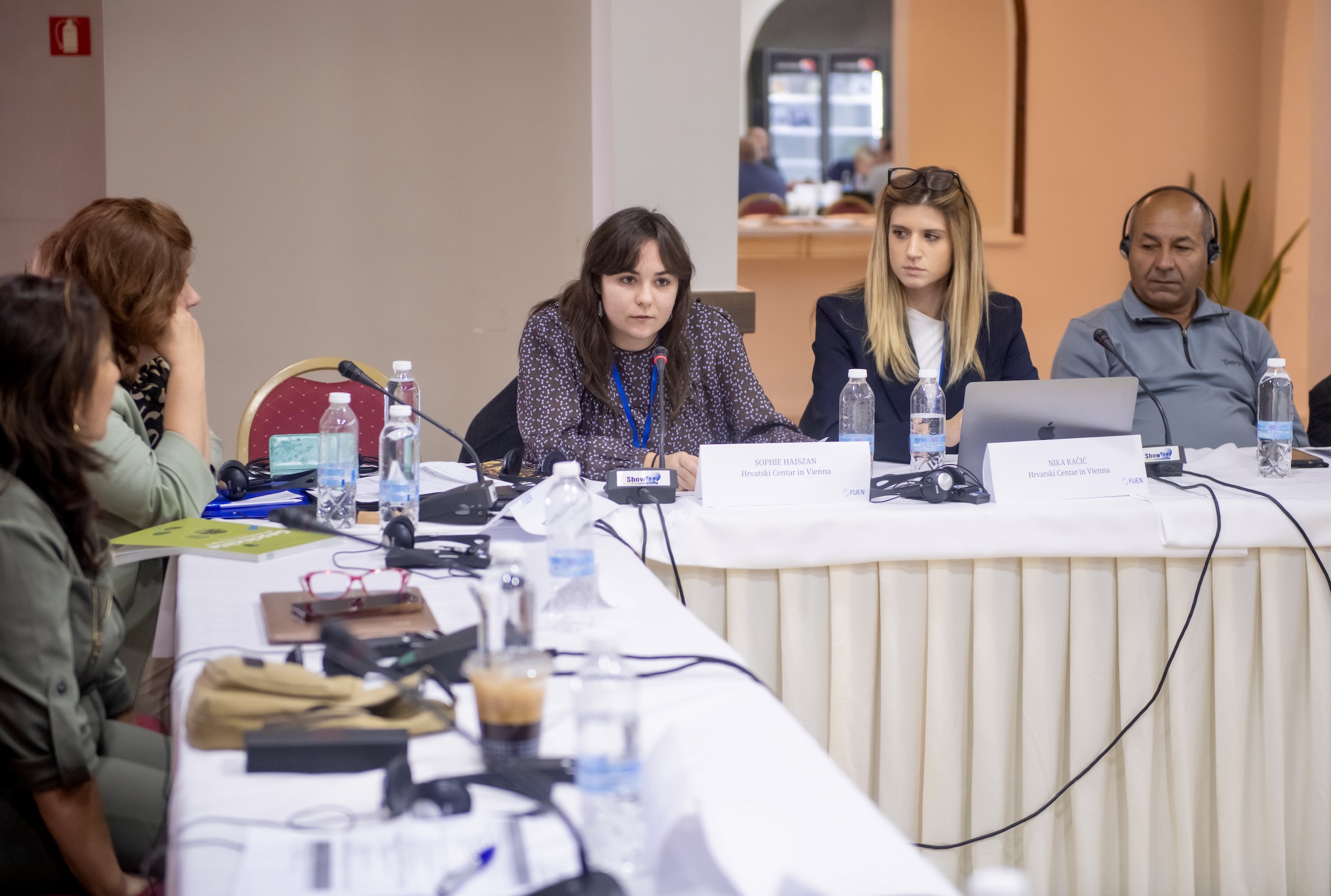
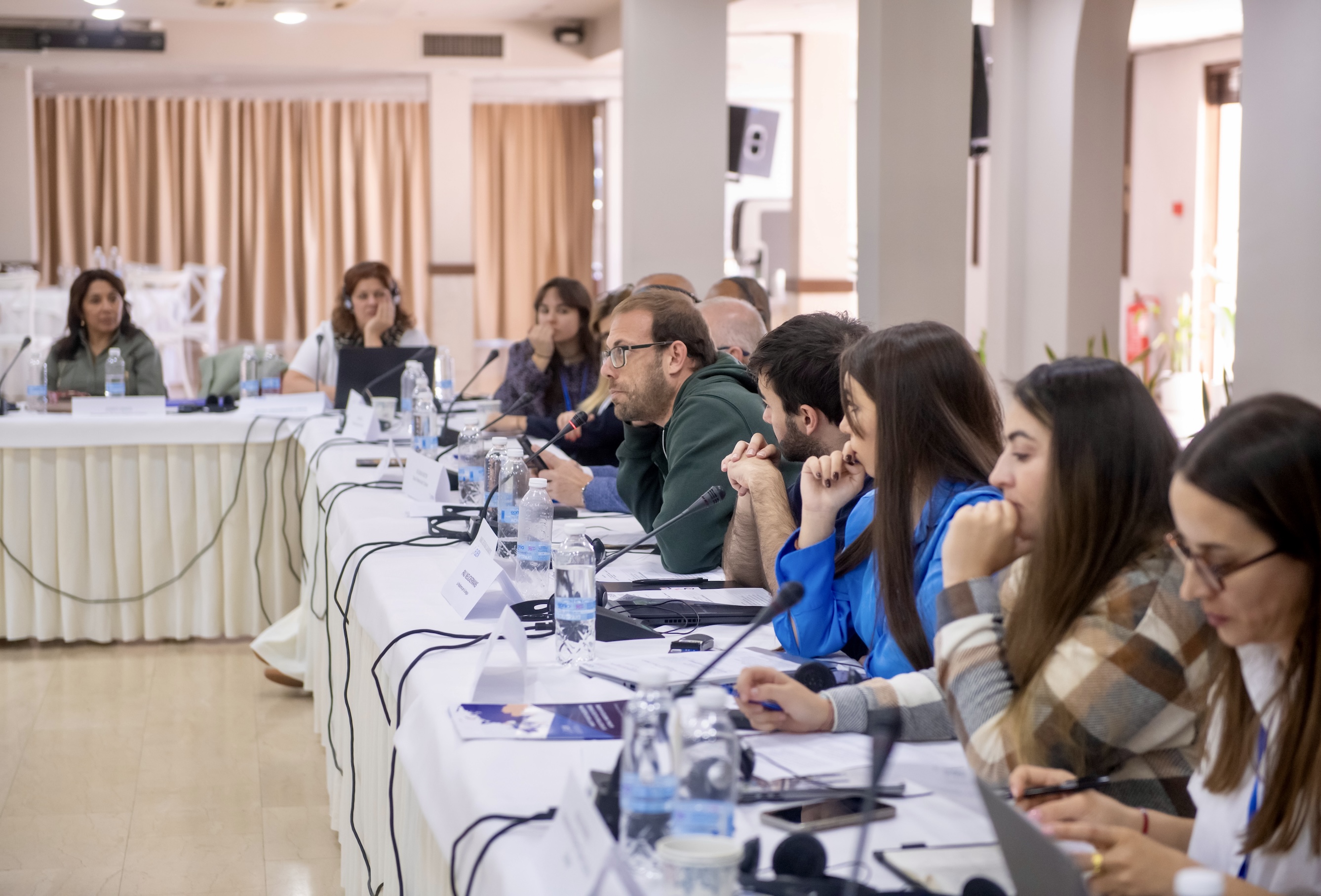
COMMUNIQUÉ DE PRESSE
- FUEN wishes you a peaceful Christmas season, restful days and a bright, hopeful start to the new year!
- FUEN calls on the EU to act over systematic ethnic-based land confiscations in Slovakia
- Women of Minorities conference in Budapest calls for structural change to ensure equal political participation of minority women
- FUEN President Olivia Schubert at UN Forum on Minority Issues in Geneva
- "Laboratory of Peace": 28th Seminar of Slavic Minorities held in European Capital of Culture Gorica/Gorizia
- Equality in Political Participation and Representation: Third “Women of Minorities” Conference to Be Held in Budapest
- 28th Seminar of Slavic Minorities in Europe to take place in Gorica/Gorizia, Italy
- Olivia Schubert in her first interview as FUEN President
- FUEN Assembly of Delegates elects new leadership – Olivia Schubert becomes new President
- FUEN Congress continues with presentation of South Tyrol’s minorities, Working Group meetings and Assembly of Delegates














